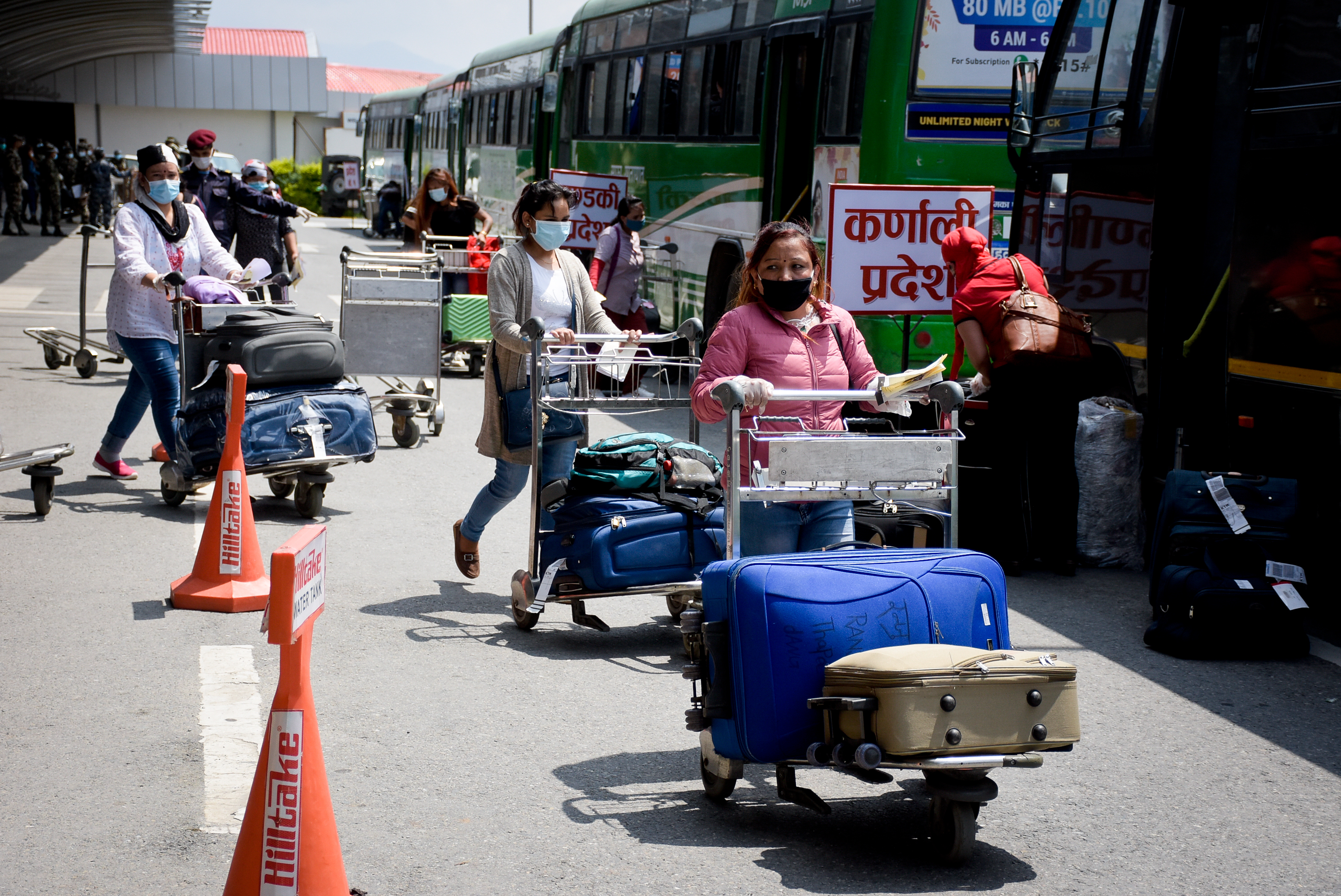Engaging returnee migrants in country a pressing issue
KATHMANDU, NOVEMBER 1
If there is one pressing issue before all three levels of the government then employing the returnee migrants in the country can’t be denied at present.
However, the lack of data on who has what skills and interest is intriguing the governments.
It is not that federal government lacks record on those migrant workers who have returned home from various countries following outbreak of COVID-19 pandemic. However, the question is where are they engaged? Where do they want to work? What are their skills if the government wants to create employment for them? Data on these aspects is must.
Although the governments at all three levels had announced the creation of jobs for returnee migrants following the outbreak of COVID-19, those with skills and knowledge have not been identified yet. Similarly, no initiative has been taken to provide skill-based training to those without any skills.
According to the latest statistics of the Ministry of Labour, Employment and Social Security (MoLESS), the government rescued 132,825 migrant workers from abroad. Similarly, among the 7,839 people who had applied for labour permits for the second or more time, only 1,659 have been provided the permit. Likewise, among the 514 persons who had applied for the labour permit to go for foreign employment for the first time, 363 have received the permit.
This data likely reveals that not all people who have returned home are willing to go abroad for employment again.
However, travel restrictions could also be another reason why people have not applied again to go abroad for employment purposes.
Moreover, MoLESS had registered 569,653 jobless people in the country. Among them, 39,730 have been provided jobs. However, none of them has been provided skill-based training. It is the government’s responsibility to provide jobs to those who have returned from abroad and give them opportunities to generate income also to realise national goal of ‘Prosperous Nepal: Happy Nepali’.
Meanwhile, the Council for Technical Education and Vocational Training (CTEVT) which provides training for shortterm employment to 50,000 youths every year is not capable to address the present demand.
Information Officer at CTEVT, Anil Muni Bajracharya, said that though the council had planned to conduct a survey on the type of skills required and the number of people who need employment among those who have returned from abroad, the growing number of coronavirus infections has impeded that plan.
Spokesperson for the Ministry of Education, Science and Technology, Deepak Sharma, informed that efforts were underway to draft a legal framework under the coordination of Open University Vice Chancellor Lekhnath Poudel to address this situation.
The National Skill Testing Board has a target to provide vocational training related to agriculture after mobilising resources at the provincial and local levels and testing the qualification, skills and capacity of the aspiring persons. It also has plans to provide training on infrastructure development, hotel management and health-related issues.
According to an analysis conducted by CTEVT, the lifestyle of people aspiring for foreign jobs could be raised by introducing skill-based projects through which they could get technical and vocational employment such as plumbing, carpentry, cooking and nursing — jobs that are in high demand and better paid in foreign countries.
Stating that the status of returnee migrants is being studied by United Nations Development Programme and International Organisation for Migration, Hari Pradhan, an expert in technical and vocational education, stressed on need for a system to use the skills and experiences of returnee migrants.






